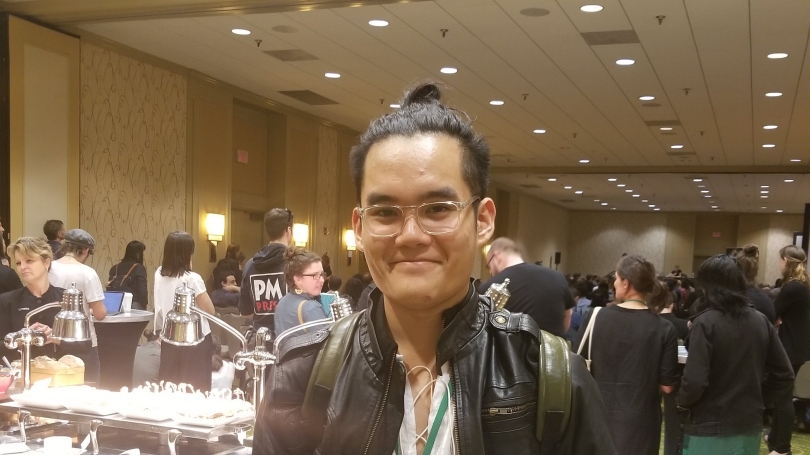
- Public Policy
- Leadership
- Funding
- News & Events
- About the Center
Back to Top Nav
Back to Top Nav
Back to Top Nav
Back to Top Nav
Arthur Benjamin Adapon '19 shares his experience attending the American Association of Geographers Conference.
This was my first time attending a conference in the discipline that I eventually I want to study through graduate school. The American Association of Geographers is the largest conference for geography in the world - so it was overwhelming at first for me to see and listen to so many people that spoke the lexicon that I learned in the Geography Department here at Dartmouth. It was exciting and intimidating: Eventually intending to pursue a PhD, I told myself that this was my way of exposing myself to key people in the discipline as well as exploring beyond the confines of my current research areas.
I learned the art of attending a conference (and especially one that was so long!). I realized very quickly that with 20 to 30 concurrent paper sessions over every hour, it was impossible (and indeed, unreasonable) to try to fill my days with the sessions that I found interesting and invigorating. I learned an incredible deal about the fields of political ecology, geopolitics, feminist geography, postcolonialism, black geographies, queer geographies, and mapping practices - some areas I have had more exposure to and some I was experiencing for the first time. I learned to introduce myself to scholars that inspired me, whose work inspired me and drove my research too. It was incredibly exhilarating to meet people who I have cited in my papers in the past telling me that my research was worth pursuing and was interesting too!
Presenting in my session was nerve wracking – as an undergraduate, I did not feel nearly as prepared nor intelligent nor theoretically grounded as any of the people that were in my session. My session was in care ethics, a field of feminist political theory that centers the importance of care practices in imagining and creating more equitable democracies. Some of the people in the session were the key thinkers in the field (who were also good friends of my professors here at Dartmouth). I was nervous, but as prepared as I ever could have been. When I went up to present, I internalized what my professors have told me: no one here knows nearly as much about your topic. You are the expert here. I was.
Using the case study of Rappler, an online news publication in the Philippines, and its coverage of Rodrigo Duterte’s war on drugs, I theorized what a distinctly Filipino care ethical response to the war on drugs would be: how does Rappler help us imagine a more caring Filipino democracy? I had a great time presenting and it was received very well. Scholars went up to me after my session and introduced me to others in my field that they thought I would get along with. I met so many incredible scholars at the conference that I felt reinvigorated to continue pursuing this path!
-Submitted by Arthur Benjamin Adapon '19, Rockefeller Center Mini Grant Recipient
The Rockefeller Center's Mini-Grants program funds registration fees for students attending conferences, as well as the costs of bringing guest speakers to Dartmouth. The views and opinions expressed here are the author’s own and do not necessarily represent the views and opinions of the Rockefeller Center or constitute an endorsement by the Center.